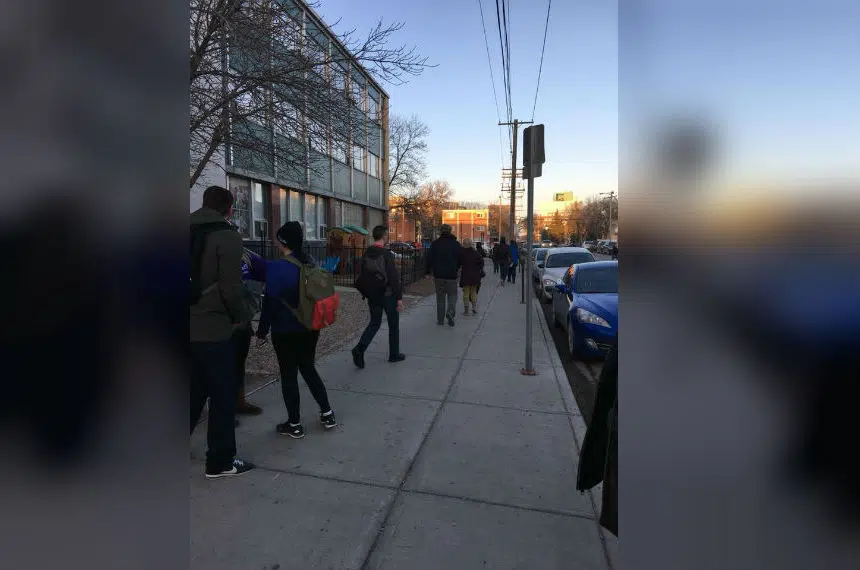Stories of high rental costs, substance abuse, addictions and domestic violence are providing a snapshot picture of homelessness in Regina.
This week, the YMCA released the full report on a point in time homelessness count and survey conducted one night in April 2018. Addison Docherty directed the point-in-time (PIT) count for the YMCA and said among the 286 people identified as homeless, 55 of those were dependent children.
“Either they were going to be couch-surfing or they were going to be in a facility or they were at a facility,” Docherty explained.
“That’s a lot of children that don’t necessarily have any control over their situation that are really affected by it as well.”
Out of 286 people who didn’t have permanent housing, 143 agreed to participate in a survey to identify what factors led them to be homeless.
Many of the results matched up with trends reported in the 2015 PIT Homelessness count.
“I think in terms of the top five reasons for housing loss like addictions and substance abuse, you know was very similar to something that would have been a huge indicator in 2015,” Docherty said. “In terms of the barriers to finding housing a lot of people noted that rent was too high or they had no income assistance or their housing conditions were very poor.”
He added 20 per cent reported domestic violence as one of the reasons for having no permanent home, particularly for women. Docherty said the answers to the survey go beyond the numbers to humanize the picture of homelessness in the city at one point in time.
“It adds a human quality to it I suppose and I think it brings a different sense of urgency because we know that we can tackle certain things,” he said.
Two-thirds of the people surveyed said the high cost of rent was the number one barrier to finding adequate housing but 29 per cent said addictions or substance abuse was the top reason for losing housing. Hidden homelessness was very prominent as nearly 30 per cent of people surveyed said they were staying at someone else’s home or couch-surfing.
Meanwhile, 79 per cent of the people surveyed identified as Indigenous and 106 out of 143 said they had moved to Regina from another community – generally within Saskatchewan.
“Homelessness doesn’t necessarily discriminate, but there are people that are disproportionately represented in the count,” Docherty said.
He believes a lot of people might be on the cusp of living cheque to cheque and after a couple of bad breaks they could find themselves without money for rent and wind up in the same situation.
“It’s very, very difficult to dig yourself out of that hole without support,” Docherty commented.
The results of the survey and count will now be used to identify areas of improvement or gaps in services between all partnering organizations to help the people who can’t find a home. This will be part of the five-year plan to end homelessness which is set to be released later this year.
Docherty added that many volunteers who helped conduct the survey came back deeply impacted by the stories they heard from people who had no place to call home. Docherty said one story that strikes home with him is that of a man he knew who used the community computers at the YMCA who finally had a place of his own for the first time in years.
“It was the first good sleep that he has had in years,” he said noting it was the first time this person felt at peace and that is something people often take for granted.











